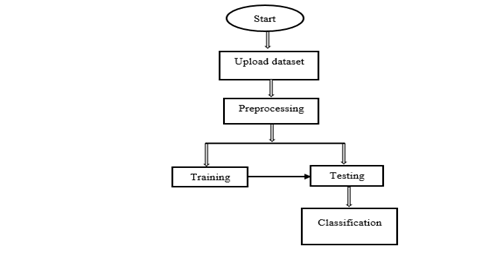Identification of Plant Nutrient Deficiencies Using Convolutional Neural Networks
Objective
The main objective of this project is classify the nutrition deficiencies of plants using deep learning and machine learning algorithms
Abstract
A novel image analysis method for identifying nutrient deficiencies in plant based on its leaf is proposed. First, the proposed method divides an input leaf image into small blocks. Second, each block of leaf pixels is fed to a set of convolutional neural networks (CNNs). Each CNN is specifically trained for a nutrient deficiency and is utilized to decide if a block is presenting any symptom of the corresponding nutrient deficiency. Next, the responses from all CNNs are integrated to produce a single response for the block using a winner-take-all strategy. Finally, the responses from all blocks are integrated into one using a multi-layer perceptron to produce a final response for the whole leaf. Validation of the proposed method was performed on a set of black gram (Vigna mungo) plants grown under nutrient controlled environments. Five types of deficiencies, i.e., Ca, Fe, K, Mg, and N deficiencies, and a group of plants with complete nutrients were studied. A dataset consisting of 3,000 leaf images was collected and used for experimentation. Experimental results indicate the superiority of the proposed method over trained humans in nutrient deficiency identifications Plants are heavily reliant on nutrients present in the soil. In some cases, such as with nitrogen or phosphorus, the plant can send these nutrients from old tissue to new tissue in the event of a deficiency in the environment. This experiment sought to analyze the effects of certain nutrient deficiencies over a four week span of growth. It was discovered that nitrogen deficiency, phosphorus deficiency, and complete nutrient deficiency all led to significant differences in growth capacity over the span of the experiment. Standard chlorophyll content also showed significant differences when comparing the nitrogen-deficient and phosphorus deficient treatments with the complete nutrient treatment. These results indicated that mobility of nutrients cannot completely offset a deficiency of said nutrient in the environment it can only help the plant attempt to survive the deficiency
Keywords - nutrient deficiency leaf, image analysis, machine learning, CNN, ANN, DenseNet121
NOTE: Without the concern of our team, please don't submit to the college. This Abstract varies based on student requirements.
Block Diagram

Specifications
H/W Specifications:
- Processor: I5/Intel Processor
- RAM: 8GB (min)
- Hard Disk: 128 GB
S/W Specifications:
- Operating System: Windows 10
- Server-side Script: Python 3.6
- IDE: PyCharm,Jupyter notebook
- Libraries Used : Numpy, IO, OS, Flask, keras, pandas, tensorflow
Learning Outcomes
•Practical exposure to
- Hardware and software tools
- Solution providing for real time problems
- Working with team/individual
- Work on creative ideas
•Testing techniques
•Error correction mechanisms
•What type of technology versions is used?
•Working of Tensor Flow
•Implementation of Deep Learning techniques
•Working of CNN algorithm
•Working of Transfer Learning methods
•Building of model creations
•Scope of project
•Applications of the project
•About Python language
•About Deep Learning Frameworks
•Use of Data Science





 Paper Publishing
Paper Publishing
